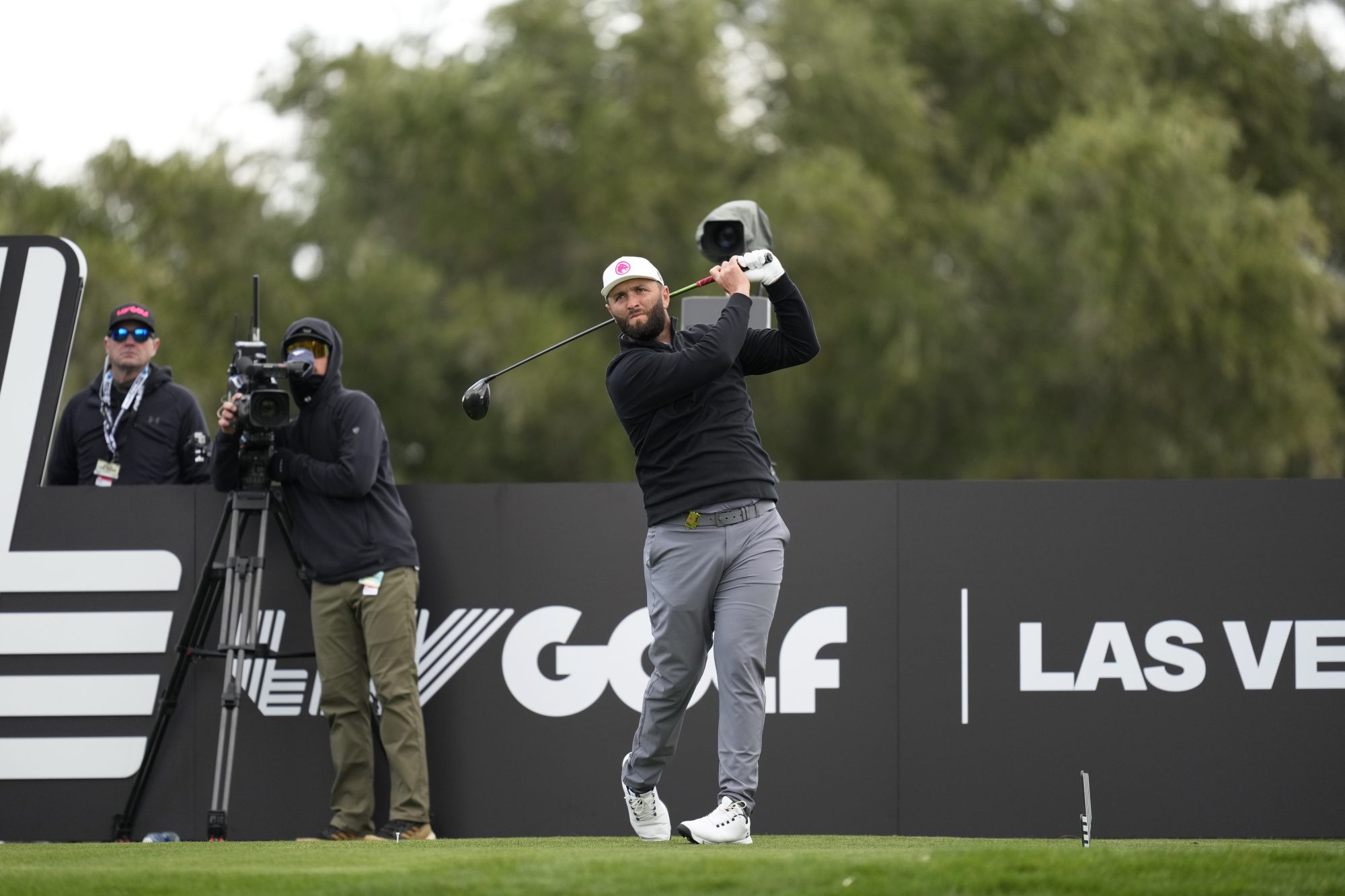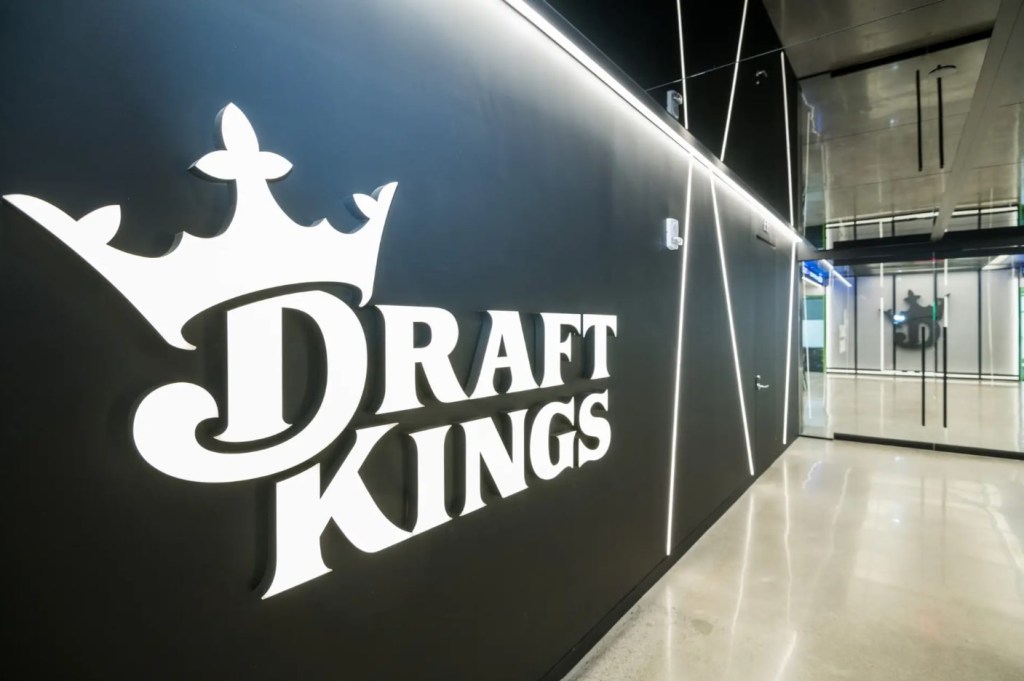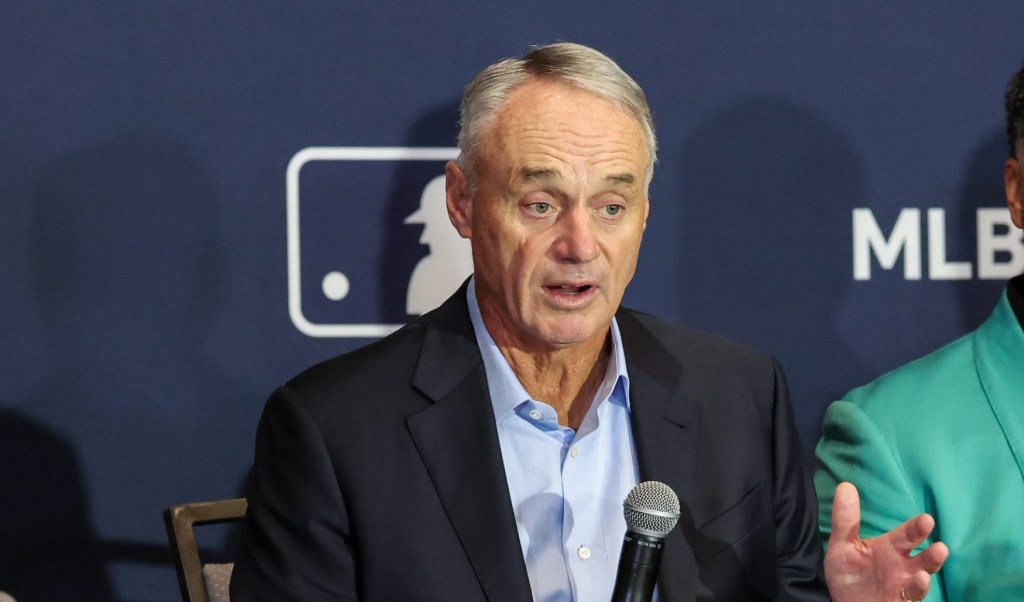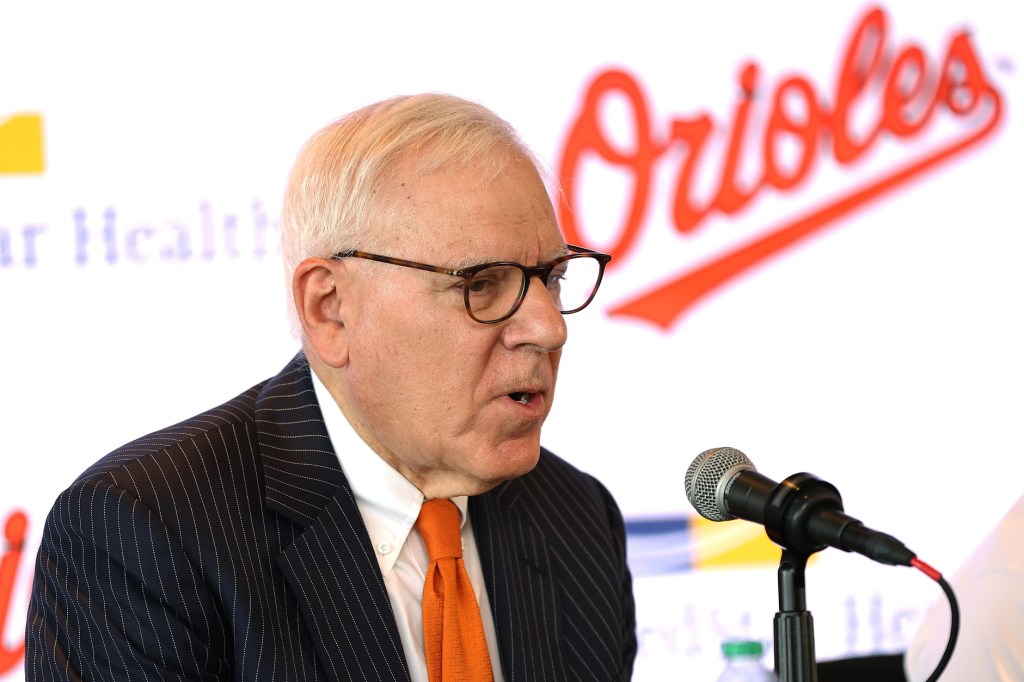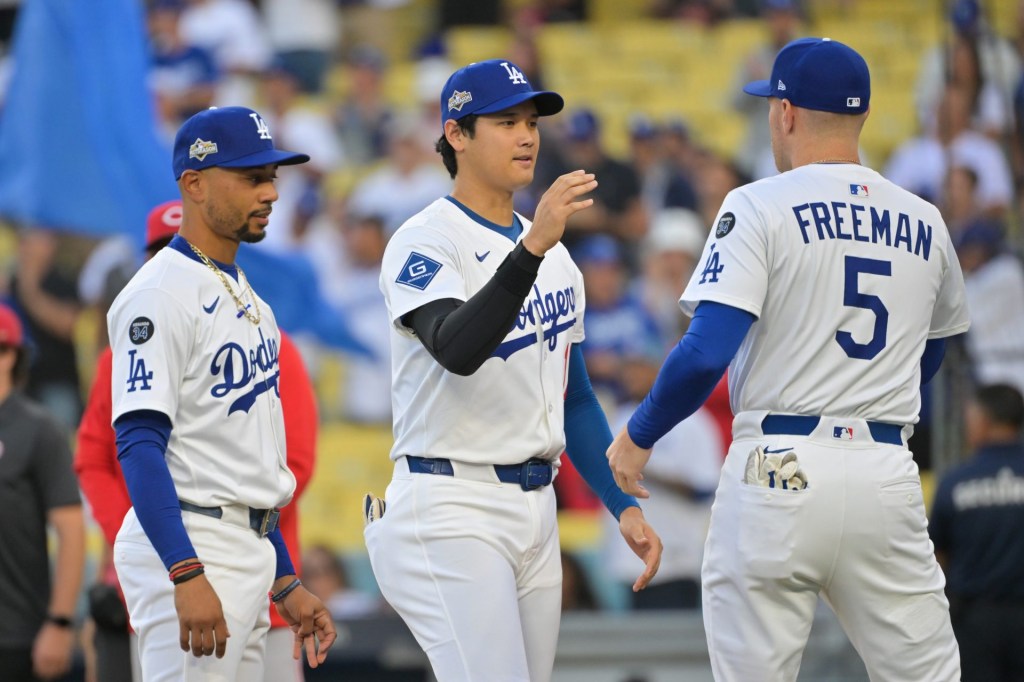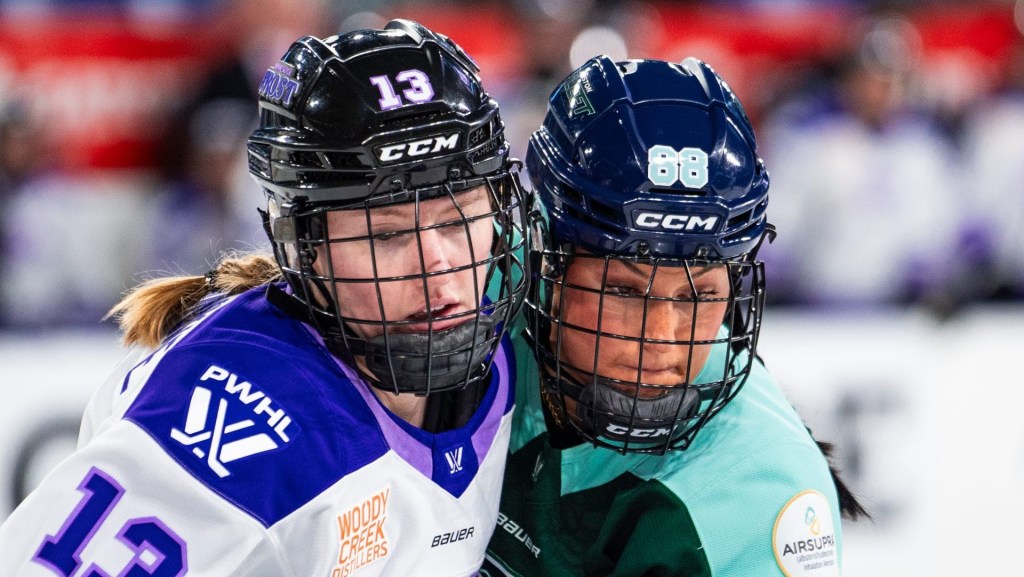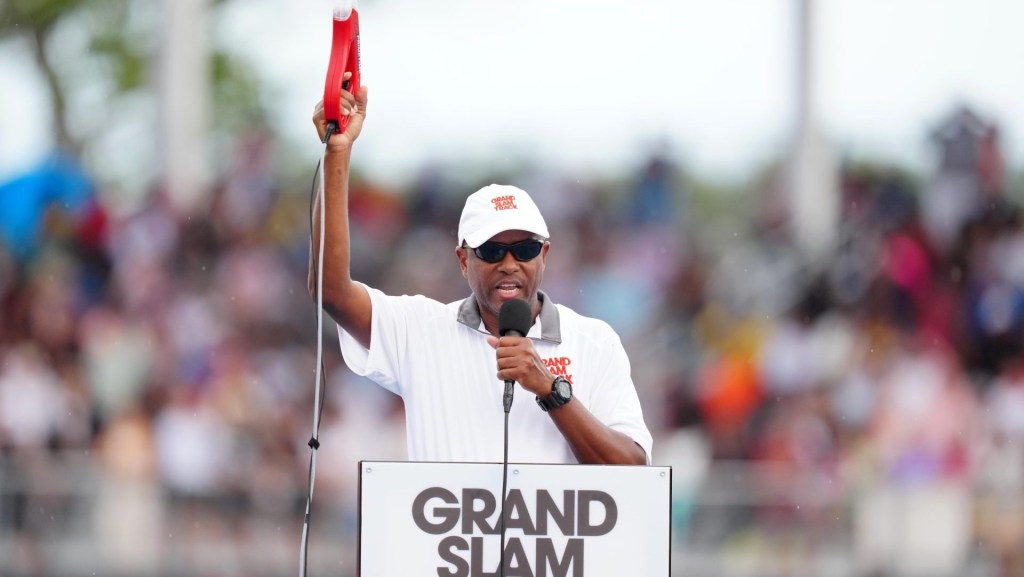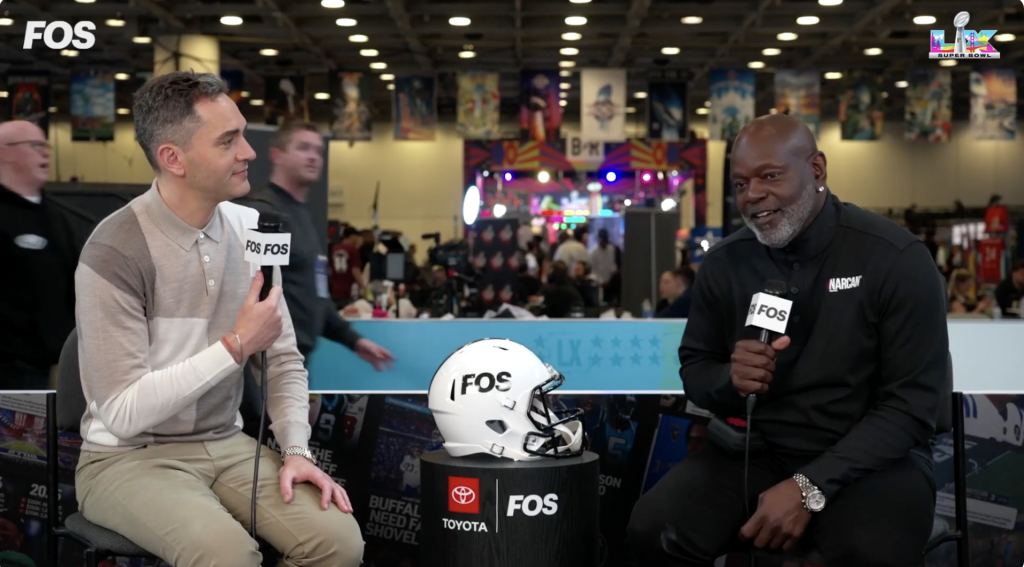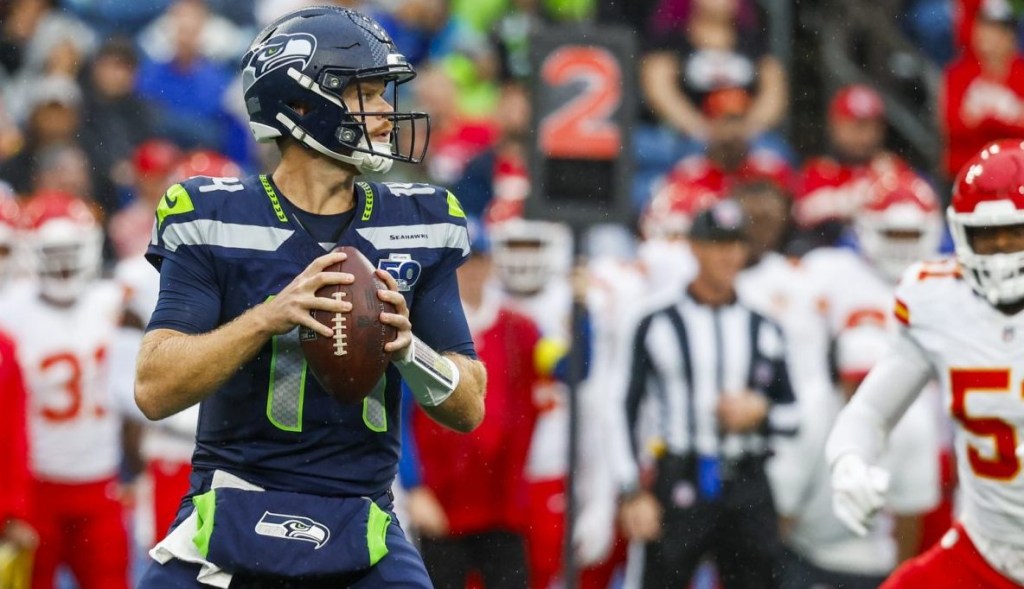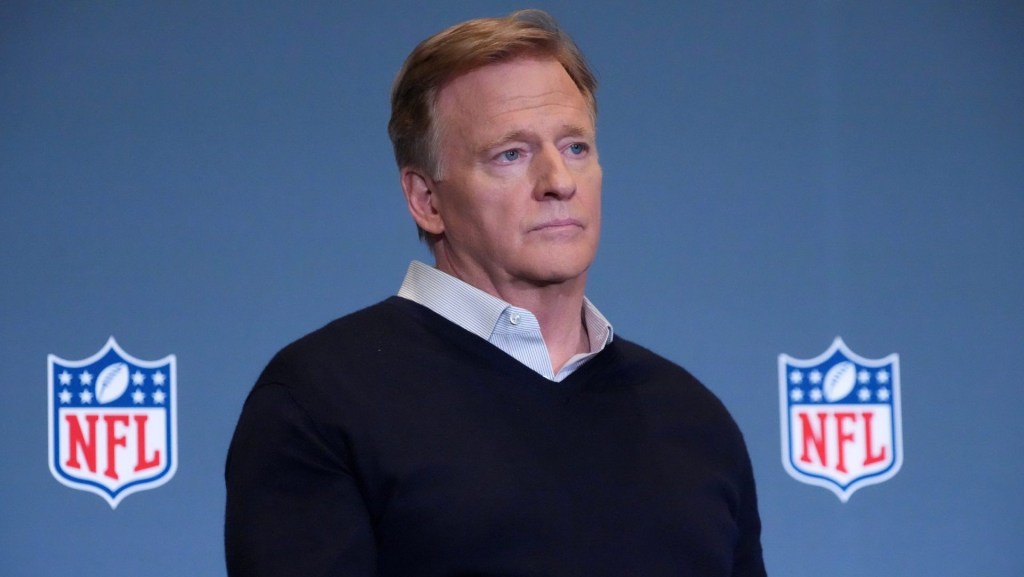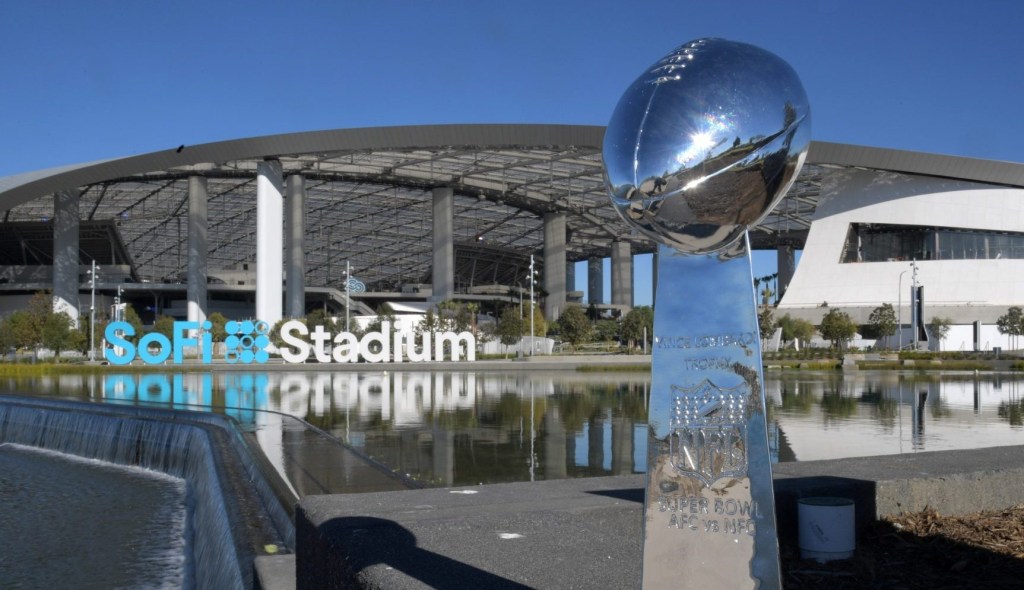Competing sporting events in the host city on Super Bowl week is not unusual—the local NBA or NHL team, for example, may have a game. In 2016, during Super Bowl weekend in San Francisco, tickets to a Golden State Warriors game were going for more in some cases than those for the Big Game itself. There is a PGA Tour stop outside Phoenix on the second weekend in February that is a big deal whenever the Super Bowl comes to town, like last year.
But Vegas being Vegas, and the number of rival sporting events that were scheduled in town during Super Bowl week is unprecedented. Last night Teofimo Lopez and Jamaine Ortiz fought at Mandalay Bay. LIV Golf has a tournament outside the city that started yesterday at the Las Vegas Country Club (above, featuring new addition Jon Rahm during Thursday’s first round). Dana White’s Power Slap competition has an event tonight at the Durango casino. UFC has a bout scheduled Saturday at its Apex. Even Formula One’s Red Bull Racing Team is getting in on the action with a livery unveiling. (O.K., so that doesn’t quite qualify as a sporting event, but you get the idea.)
“We’re taking advantage of all the sports people that are in town, and the demand for our events has been off the charts,” says UFC chief operating officer Lawrence Epstein. “I wish we would have had more capacity at the UFC Apex and at the Durango station, because the demand is not just from fans, but also from media. The credentials requested from the media for both of those events have been akin to a major pay-per-view event. We had like 400 requests for media between Power Slap and UFC.”
Does the NFL mind sharing the stage? Probably not, but as Super Bowl week keeps getting bigger, with hundreds of events and parties, it has no choice. Jamie Fritz, a partner in Interstate 15 Sports and Entertainment, says: Of course the NFL cares, because the raft of sporting events is, in his words, “guerrilla marketing.”
“It’s brilliant for all these [sports] to do it, whether or not the NFL likes it,” Fritz says. “We know they don’t, but look: It’s brilliant for all the brands to capitalize on it. It’s solely guerilla marketing, 1,000%.”
By a check of StubHub, no tickets are available for the UFC fight tomorrow night, an event that Elon Musk plans to attend. The Power Slap event at Durango casino has seating for only 750. It’s the first time tickets are being sold for the Power Slap series, and Epstein says he wishes he had more to sell.
Meanwhile, LIV Golf is piggybacking off the Super Bowl, too. “To be in Las Vegas the week of the Super Bowl, that’s the demographic we are trying to hit,” Phil Mickelson said in a video provided by the circuit. LIV Golf even advertised at the Tuesday night Golden Knights game at T-Mobile Arena.
And then there’s Red Bull’s Visa Cash App RB team, which last night unveiled its new race suit, followed by a party headlined by Kendrick Lamar and Baby Keem. The team declined to comment on why it chose the Super Bowl for the event, but F1 does have a permanent presence in Las Vegas with its racing paddock built for the Las Vegas Grand Prix.
Could future Super Bowl host cities see a similar influx of sporting events? Unlikely, given Las Vegas’s unique status as a party town and its infrastructure of casinos, arenas, and sports venues.
“The infrastructure this city has to host major events is truly second to none,” says Epstein. Also, UFC is based in Vegas. “And it just shows you: The Las Vegas ecosystem is so synergistic. You get these one plus one equals five or six situations, where events leverage off other events, and it just makes the whole thing bigger. Vegas is one of the cities where you can go to UFC events one night, a hockey game another night, hit the Raiders game on Sunday, maybe even hit NASCAR, Formula One. You have these ultimate sports weekends that just can’t be replicated anywhere else.”
Other cities might beg to differ, but there is no denying this Super Bowl week had more sporting alternatives than any of the preceding 57.
